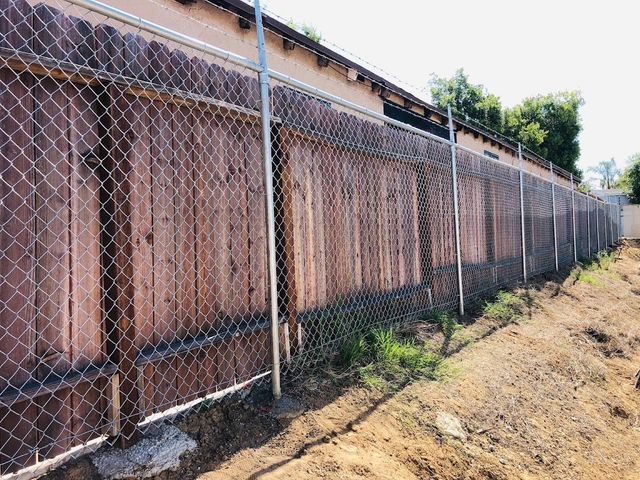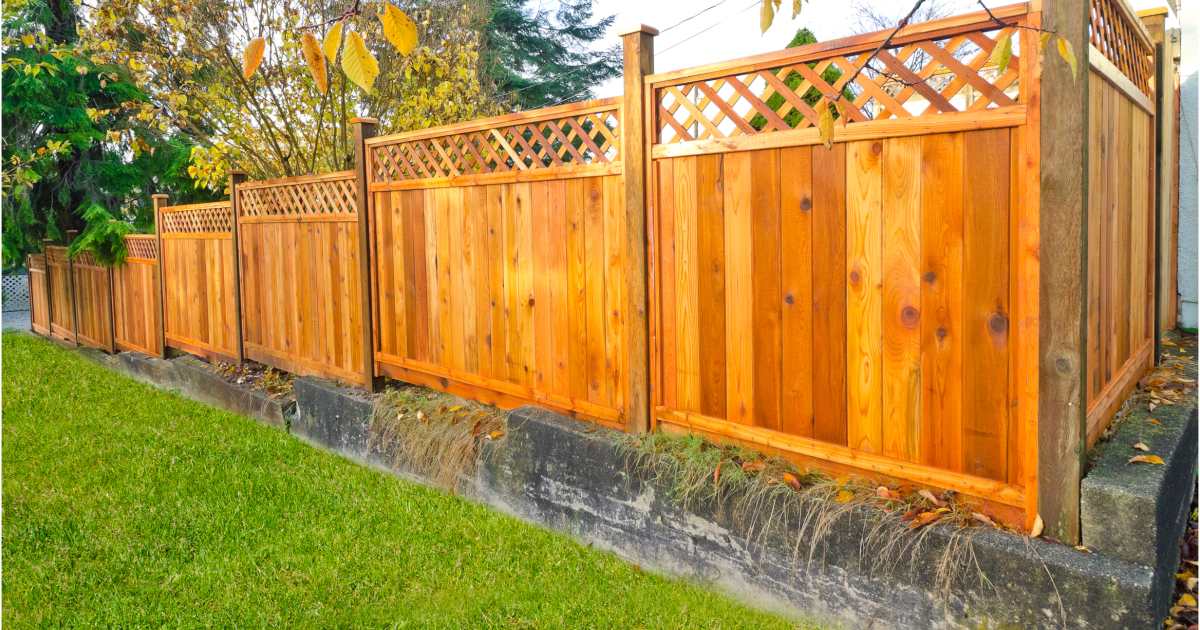All Categories
Featured
When choosing a fence for your residential property, it's vital to take into consideration variables like cost, longevity, maintenance, and visual appeal. 3 of one of the most prominent materials for residential and industrial fencings are wood, aluminum, and plastic. Each deals distinct advantages and some disadvantages, making it crucial to review your demands prior to choosing. Listed below, we contrast the pros and cons of these products to aid assist your option.
Timber Fence. Pros:
![]()
Natural Aesthetic: Wood fences are recognized for their classic, natural appearance. They can quickly blend into a lot of landscapes and improve the beauty of your home or service. Whether you're intending for a rustic appearance or an extra polished surface, timber can be tailored with paint, tarnish, or sealer. Modification: Timber is one of the most functional materials, permitting a variety of styles, such as picket fences, personal privacy fencings, and ranch-style units. It's simple to adjust the layout to fit the particular needs of your property. Budget-friendly: Generally, timber fencings come with a lower initial cost contrasted to plastic or aluminum, making them an economical option for those on a spending plan. Disadvantages:
Upkeep Demands: Timber fences need normal maintenance to keep their beauty and functionality. This consists of staining or painting to protect versus rot, termites, and weather damage. Without proper treatment, timber can break down with time. Much Shorter Life Expectancy: Compared to plastic or aluminum, timber fences tend to have a shorter lifespan, specifically in locations with severe climate. Severe problems, such as heavy rain, humidity, or snow, can cause wood to degrade quicker. Prone to Damages: Timber fencings are vulnerable to harm from insects, consisting of termites, along with all-natural wear from weather. They may likewise warp or split otherwise properly preserved. Vinyl Fence. Pros:
Low Maintenance: Among the major advantages of vinyl fences is that they call for very little upkeep. Unlike timber, plastic does not need to be painted, secured, or stained. It's immune to fading, staining, and cracking, which conserves money and time on maintenance. Durability: Plastic is recognized for its capability to endure extreme climate condition without wearing away. It's unsusceptible pests like termites, and its resistance to moisture and UV rays guarantees it stays looking great for numerous years. Resilient: A vinyl fence can last up to thirty years or even more, making it an excellent long-lasting financial investment. Numerous producers use guarantees, better improving its value. Variety of Styles: Plastic fences are readily available in various colors and styles, consisting of those that simulate timber. You can select from privacy, picket, or attractive designs, supplying flexibility to match your home or business. Cons:
![]()
Higher Upfront Expense: Plastic fences have a tendency to have a greater initial cost than timber. While the long-term financial savings on upkeep are considerable, the upfront financial investment might be a deterrent for some house owners. Restricted Personalization: Vinyl fences come in basic styles, and while colors and designs are different, you might not have as much versatility for personalization contrasted to wood. Fracturing in Cold Climates: While plastic is sturdy, in incredibly chilly environments, it can end up being weak and crack upon influence, which could be problematic in areas with rough winters. Light weight aluminum Secure fencing. Pros:
Low Upkeep: Light weight aluminum fencings are known for their low-maintenance demands. Unlike timber, light weight aluminum doesn't corrosion or corrode, and it doesn't require to be repainted or sealed. This makes it an excellent selection for those who want a problem-free choice. Durability and Toughness: Light weight aluminum is a durable material that stands up well to extreme weather condition problems. It's a superb choice for seaside locations where saltwater corrosion is a problem, as it's immune to rust. Visual Appeal: Light weight aluminum fencings supply a tidy, elegant look, commonly used for attractive purposes. They're readily available in various styles, consisting of decorative layouts, and can include a high-end feeling to your residential property. Protection: Aluminum fencings are resilient and offer fantastic safety and security, particularly when installed with entrances or locks. Their strong building gives a trustworthy barrier against undesirable entrance. Disadvantages:
![]()
Greater Initial Expense: Light weight aluminum fencings often tend to be much more expensive than wood, specifically if you go with attractive layouts. The in advance cost may be excessive for some. Much Less Privacy: Aluminum fences usually have bigger voids between the slats, which suggests they provide less privacy than timber or plastic fencings. If privacy is a priority, aluminum might not be the most effective option. Nicking Concerns: While aluminum is rust-resistant, it is at risk to denting or flexing if struck with force. An automobile mishap or heavy impact can create long-term damages to the fence. Which Fence Product is Right for You? Choosing the right fence relies on several variables, including your budget, style choices, upkeep capacity, and the setting in which you live. If you desire a natural appearance and are gotten ready for routine maintenance, timber may be the right option. If low-maintenance and long life are your top priorities, vinyl is a fantastic selection. For those who like a streamlined, modern-day look with marginal care, light weight aluminum supplies a durable, safe option.
Inevitably, each secure fencing material has its cons and pros, so it is essential to evaluate what matters most for your certain demands. Consider the climate, the degree of privacy you need, and exactly how much maintenance you agree to devote to, and you'll discover the best fence for your residential or commercial property.
Timber Fence. Pros:

Natural Aesthetic: Wood fences are recognized for their classic, natural appearance. They can quickly blend into a lot of landscapes and improve the beauty of your home or service. Whether you're intending for a rustic appearance or an extra polished surface, timber can be tailored with paint, tarnish, or sealer. Modification: Timber is one of the most functional materials, permitting a variety of styles, such as picket fences, personal privacy fencings, and ranch-style units. It's simple to adjust the layout to fit the particular needs of your property. Budget-friendly: Generally, timber fencings come with a lower initial cost contrasted to plastic or aluminum, making them an economical option for those on a spending plan. Disadvantages:
Upkeep Demands: Timber fences need normal maintenance to keep their beauty and functionality. This consists of staining or painting to protect versus rot, termites, and weather damage. Without proper treatment, timber can break down with time. Much Shorter Life Expectancy: Compared to plastic or aluminum, timber fences tend to have a shorter lifespan, specifically in locations with severe climate. Severe problems, such as heavy rain, humidity, or snow, can cause wood to degrade quicker. Prone to Damages: Timber fencings are vulnerable to harm from insects, consisting of termites, along with all-natural wear from weather. They may likewise warp or split otherwise properly preserved. Vinyl Fence. Pros:
Low Maintenance: Among the major advantages of vinyl fences is that they call for very little upkeep. Unlike timber, plastic does not need to be painted, secured, or stained. It's immune to fading, staining, and cracking, which conserves money and time on maintenance. Durability: Plastic is recognized for its capability to endure extreme climate condition without wearing away. It's unsusceptible pests like termites, and its resistance to moisture and UV rays guarantees it stays looking great for numerous years. Resilient: A vinyl fence can last up to thirty years or even more, making it an excellent long-lasting financial investment. Numerous producers use guarantees, better improving its value. Variety of Styles: Plastic fences are readily available in various colors and styles, consisting of those that simulate timber. You can select from privacy, picket, or attractive designs, supplying flexibility to match your home or business. Cons:

Higher Upfront Expense: Plastic fences have a tendency to have a greater initial cost than timber. While the long-term financial savings on upkeep are considerable, the upfront financial investment might be a deterrent for some house owners. Restricted Personalization: Vinyl fences come in basic styles, and while colors and designs are different, you might not have as much versatility for personalization contrasted to wood. Fracturing in Cold Climates: While plastic is sturdy, in incredibly chilly environments, it can end up being weak and crack upon influence, which could be problematic in areas with rough winters. Light weight aluminum Secure fencing. Pros:
Low Upkeep: Light weight aluminum fencings are known for their low-maintenance demands. Unlike timber, light weight aluminum doesn't corrosion or corrode, and it doesn't require to be repainted or sealed. This makes it an excellent selection for those who want a problem-free choice. Durability and Toughness: Light weight aluminum is a durable material that stands up well to extreme weather condition problems. It's a superb choice for seaside locations where saltwater corrosion is a problem, as it's immune to rust. Visual Appeal: Light weight aluminum fencings supply a tidy, elegant look, commonly used for attractive purposes. They're readily available in various styles, consisting of decorative layouts, and can include a high-end feeling to your residential property. Protection: Aluminum fencings are resilient and offer fantastic safety and security, particularly when installed with entrances or locks. Their strong building gives a trustworthy barrier against undesirable entrance. Disadvantages:

Greater Initial Expense: Light weight aluminum fencings often tend to be much more expensive than wood, specifically if you go with attractive layouts. The in advance cost may be excessive for some. Much Less Privacy: Aluminum fences usually have bigger voids between the slats, which suggests they provide less privacy than timber or plastic fencings. If privacy is a priority, aluminum might not be the most effective option. Nicking Concerns: While aluminum is rust-resistant, it is at risk to denting or flexing if struck with force. An automobile mishap or heavy impact can create long-term damages to the fence. Which Fence Product is Right for You? Choosing the right fence relies on several variables, including your budget, style choices, upkeep capacity, and the setting in which you live. If you desire a natural appearance and are gotten ready for routine maintenance, timber may be the right option. If low-maintenance and long life are your top priorities, vinyl is a fantastic selection. For those who like a streamlined, modern-day look with marginal care, light weight aluminum supplies a durable, safe option.
Inevitably, each secure fencing material has its cons and pros, so it is essential to evaluate what matters most for your certain demands. Consider the climate, the degree of privacy you need, and exactly how much maintenance you agree to devote to, and you'll discover the best fence for your residential or commercial property.
Latest Posts
Encouraging Young people with WyHy's Financial Tools
Published Apr 19, 25
1 min read
Boost Your Home with Automatic Gates
Published Apr 19, 25
1 min read
About Us: Learn More The Services at Montclare Auto Repair and Our Trusted Solutions
Published Apr 19, 25
2 min read